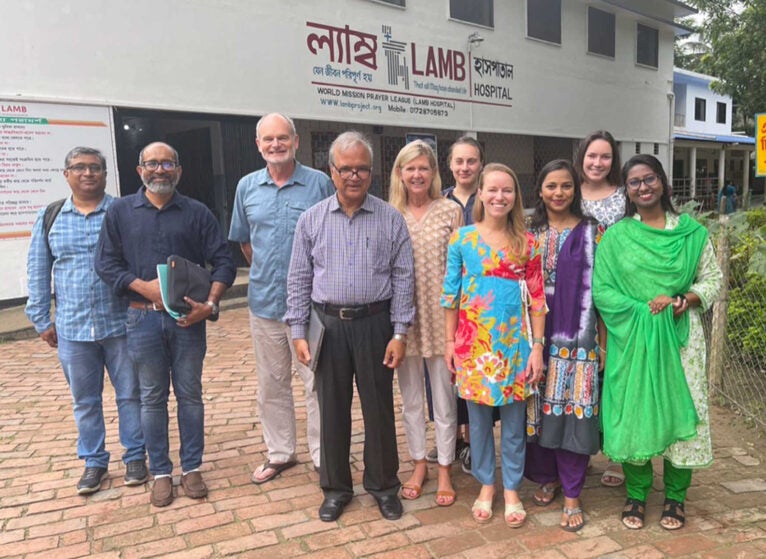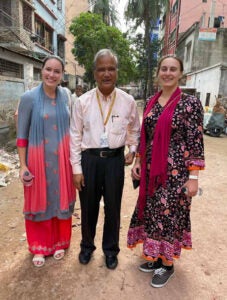

Dr. William Petri, third from left, stands with researchers at LAMB Hospital in Bangladesh. (Contributed photo)
UVA Study Will Help New Moms in Bangladesh Recover From Anemia
Here’s an understatement: Childbirth can be taxing. The process drains the blood of iron, adding to postpartum fatigue, which can lead to life-threatening anemia in up to 25% of new mothers.
Dr. William Petri of the University of Virginia returned Friday from Saidpur, Bangladesh, where he and two doctoral candidates spent a week setting the stage for a hospital trial to combat postpartum anemia. The new medical protocols at the country’s LAMB Hospital start this week.
Anemia can lead to increased infections, irregular heartbeat, trouble breathing and other potentially life-threatening problems. The researchers want to see how much they can improve health and wellness measures through the administration of intravenous iron treatment.
In the United States, giving iron to depleted mothers via IV is standard care, as it treats anemia faster. But in low- and middle-income countries, there’s often a different approach.
“Traditionally, iron-deficiency anemia in these countries is treated with iron pills, and treatment takes months to accomplish, during which time the mother is still anemic,” Petri said. “A single intravenous dose of iron will accomplish the same thing, and cure the anemia within weeks instead of months.”
The study will make data comparisons between the two approaches, which may lead to future policy changes. UVA graduate students Rachel Boone and Dana van Fossen, members of Petri’s globe-spanning lab, observed setup at LAMB, which is just one site among seven in a larger National Institutes of Health international maternal health project.
Petri serves as the Wade Hampton Frost Professor of Medicine at UVA. He is vice chair for research in the Department of Medicine. He has expertise in infectious diseases and international health.
In the spring, Petri and colleagues published related maternal research in the New England Journal of Medicine. The results demonstrated the high efficacy of a single dose of the antibiotic azithromycin in preventing sepsis, a blood-borne threat, in association with vaginal delivery.
Latest News




